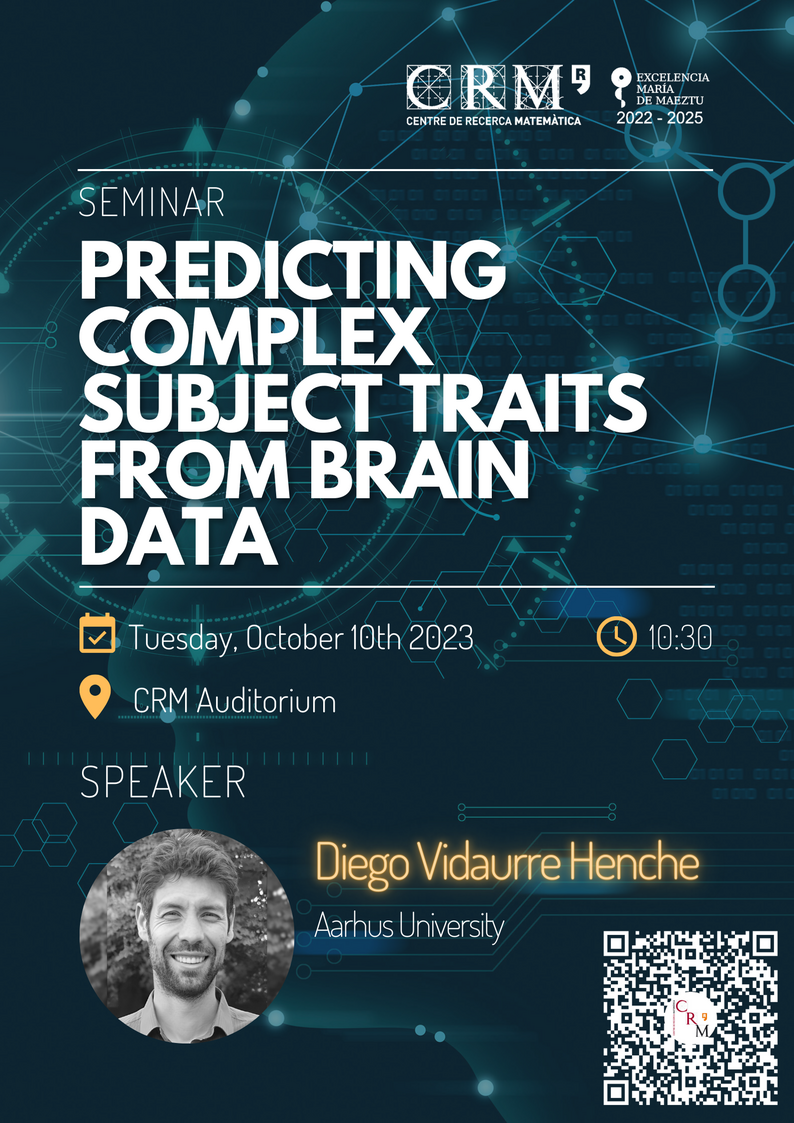Seminar: Predicting complex subject traits from brain data
Sign inRegistration is free but mandatory
ABSTRACT
All models of the brain are wrong to a large extent, but sometimes some of them can be useful. In cognitive science, neuroscience, psychiatry, etc. we use models to help us understand complex systems and for prediction and forecasting. In this talk I will focus on prediction, which is used for example for diagnosis and prognosis; but also as a tool for understanding. Brain activity during wakeful rest, in particular, has been shown to be significantly predictive of various subject psychological and/or clinical traits. But it is far from obvious how to construct features that take into account the dynamics of brain activity given that, in an unconstrained cognition paradigm, we cannot align the subjects’ data temporally. In this talk, I will describe some methods and algorithms to predict behavioural traits from brain activity via intermediate models of brain activity, using data from fMRI and EEG.
Diego Vidaurre Henche
Aarhus University
I work on Bayesian statistical modelling of brain data with a focus on predicting individual characteristics, for example clinical or psychological. Within this theme, I explore spontaneous brain activity in wakefulness and sleep, as well as the relation of this activity to stimulus responses.
I graduated in the Universidad Politecnica de Madrid in 2012 in Computer Science and Statistics, and then moved to the University of Oxford as a postdoc in Computational Neuroscience, where I worked for 7 years. I have also been an Assistant Professor in Osaka, Japan; and since 2020 I became an Associate Professor and then a Professor in Aarhus University, Denmark, where I have constructed my research group.
list of participants
| Name | Institution |
|---|---|
| Judit Chamorro-Servent | Universitat Autònoma de Barcelona |
| David Romero i Sànchez | Centre de Recerca Matemàtica |
| Dídac Gil Rams | Centre de Recerca Matemàtica |
| Alexandre Garcia-Duran | Centre de Recerca Matemàtica |
| Pau Olivés Tarrés | CSIC |



